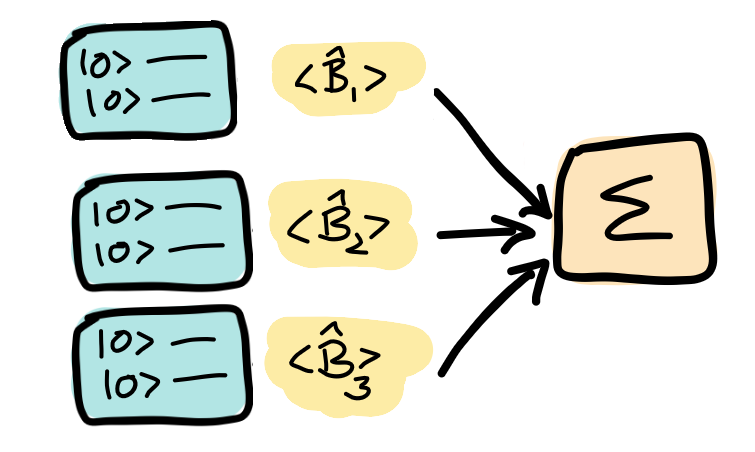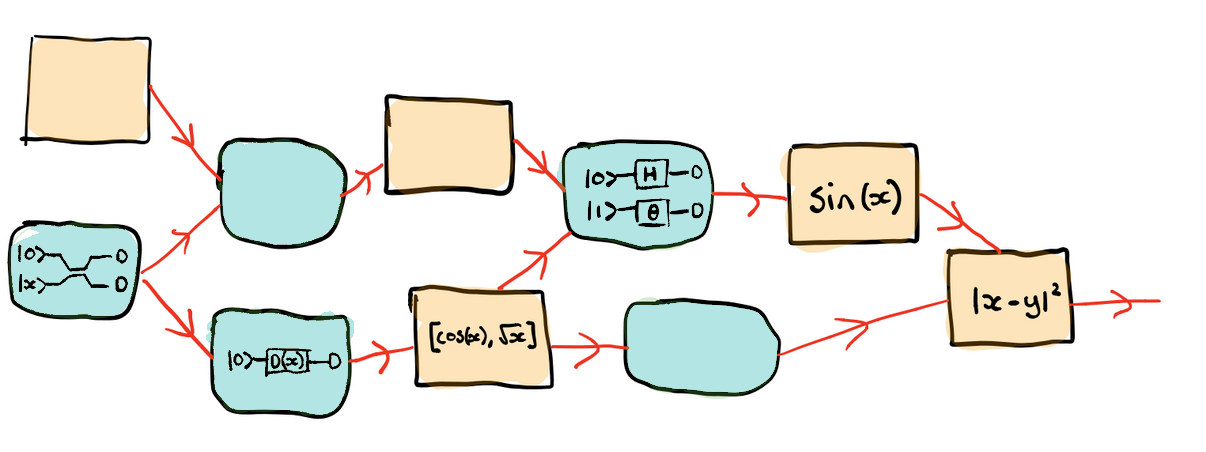Hybrid computation¶
In the context of quantum computing, the term hybrid refers to the strategy of mixing classical and quantum computations. This lies at the heart of optimizing variational circuits, where a quantum algorithm is optimized with the help of a classical co-processor.
Typically, quantum devices used to estimate averages of measurement results (i.e., expectations of quantum observables), which are combined in a single classical cost function that determines how “good” the quantum circuits are. For example, in variational quantum eigensolvers (Peruzzo et al. (2013)), the results of some quantum expectations \(\langle \hat{B}_i \rangle\) are summed up.
Directed acyclic graphs¶
It is easy to imagine more interesting ways we could combine quantum and classical ingredients into a larger and more complex hybrid computation. In general, one can understand these subroutines as classical and quantum nodes.
Quantum and classical nodes can be combined into an arbitrary directed acyclic graph (DAG). This means that information flows from each node to its successors, and no cycles (loops) are created. Other than these basic rules, any configuration is supported. Each node in the graph can be either classical or quantum, and quantum nodes running on different devices (e.g., a qubit and a CV device) can be combined in the same computation.
This DAG structure is similar to that appearing in modern deep learning models.
Backpropagation through hybrid computations¶
Since we can estimate the gradients of variational quantum circuits, hybrid computations are compatible with techniques like the famous backpropagation algorithm (also known as reverse-mode automatic differentiation), the workhorse algorithm for training deep learning models.
This means that we can differentiate end-to-end through hybrid quantum-classical computations. Quantum algorithms can thus be trained the same way as classical deep learning models.
Note
The ability to backpropagate through hybrid computations does not mean that one can backpropagate (i.e., compute errors) through a quantum computation. The quantum node is more considered as a black box whose gradient is known to the backpropagation algorithm.
See also
PennyLane effectively implements differentiable hybrid computations, and offers interfaces with NumPy (powered by the Autograd library), Pytorch, Tensorflow.

